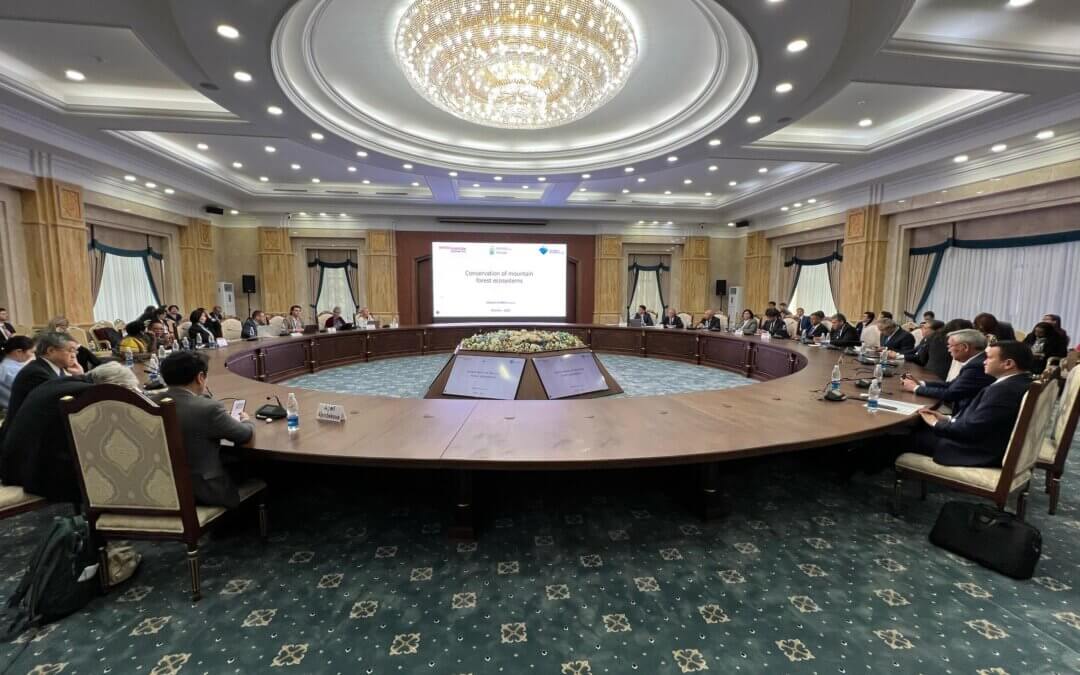GSLEP-Led Session Drives Momentum for Transboundary Conservation and Climate-Resilient Strategies
Bishkek, Kyrgyz Republic — The Global Snow Leopard and Ecosystem Protection Program (GSLEP) Secretariat convened a high-level parallel session at the *International Conference “Global Mountain Dialogue for Sustainable Development: Towards the Summit Bishkek+25”* on April 24, 2025, uniting policymakers, scientists, and conservation leaders to address urgent challenges facing mountain ecosystems. Titled “Conservation of Mountain Ecosystems and Biodiversity: Experience Exchange,” the session highlighted innovative solutions and strengthened commitments to safeguarding fragile high-altitude habitats ahead of the landmark Bishkek+25 Global Mountain Summit in 2027.
Key Outcomes and Recommendations
Chyngyz Kochorov, Head of the GSLEP Secretariat, underscored the session’s achievements: “From Africa to Central Asia, we’ve forged actionable pathways to protect mountain biodiversity. Our collective resolve must now translate into scaled-up collaboration and policy integration.” Key outcomes included:
- Transboundary Cooperation: A call to expand regional networks for migratory species, modeled after GSLEP’s success in snow leopard conservation.
- Funding Mechanisms: Advocacy for streamlined financing to support community-led conservation, climate adaptation, and tech-driven research.
- Science-Policy Integration: A mandate for standardized biodiversity monitoring using AI, remote sensing, and cross-border data sharing.
- Green Infrastructure: Promotion of nature-based solutions for sustainable development, ensuring infrastructure projects minimize ecological disruption.
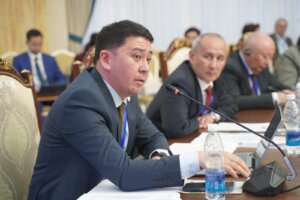
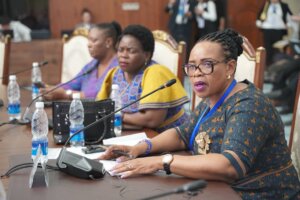
Quotes from Leadership
Mr. Meder Mashiev, Minister of Natural Resources, Ecology and Technical Supervision of the Kyrgyz Republic:
“As a nation where 94% of our territory is mountains, Kyrgyzstan is deeply committed to advancing global recognition of the irreplaceable value of these ecosystems. In 2022, we spearheaded the UN General Assembly’s landmark resolution on Sustainable Mountain Development, which established a five-year action plan to protect vulnerable high-altitude regions. This is not just our duty—it is a call to collective action for all mountain nations.”
Dr. Koustubh Sharma, Scientific Director of the Snow Leopard Trust:
“The snow leopard exemplifies the interconnectedness of mountain health and human well-being. Protecting this species means protecting entire landscapes.”
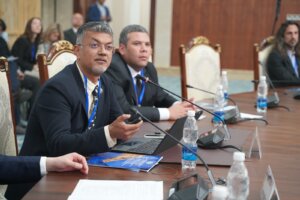
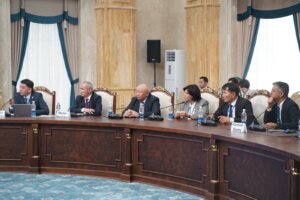
The session featured insights from Honorable Justice Nthomeng Majara, Deputy Prime Minister of Lesotho; Mr. Nurlan Kurmalaev, Vice-Minister of Ecology and Natural Resources of Kazakhstan; Mr. Yutaka Matsuzawa, Vice-Minister of the Environment, Japan (online); Ms. Tanya Rosen, Director of Asia Programs at Conservation X Labs (Turkmenistan); Mr. Maarten Hofman, Associate Programme Manager at UNEP Vienna; Mr. Matt Raulerson, Project Coordinator of the Ilbris Foundation; and Mr. Maxim Kulikov of the University of Central Asia.
Session Highlights
- Threats Addressed: Discussions centered on climate-induced extremes (droughts, landslides), economic pressures (mining, overgrazing), and grassroots solutions like community-led ecotourism and energy-efficient alternatives.
- Innovative Tools: Showcases included drone monitoring, AI-powered wildlife tracking, and partnerships like the Ilbris Foundation’s transboundary park initiative between Kyrgyzstan and Kazakhstan.
- Community Empowerment: Case studies highlighted local successes in pasture management, organic farming, and traditional water resource practices.
The session’s policy recommendations and collaborative frameworks will feed into the Bishkek+25 Summit Declaration, shaping global climate and biodiversity agendas. GSLEP reaffirmed its role as a catalyst for mountain ecosystem resilience, urging nations to prioritize high-altitude regions in UNFCCC and CBD negotiations.



